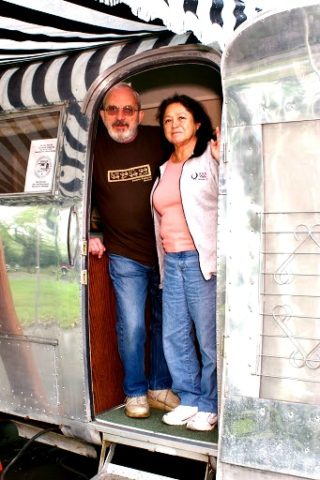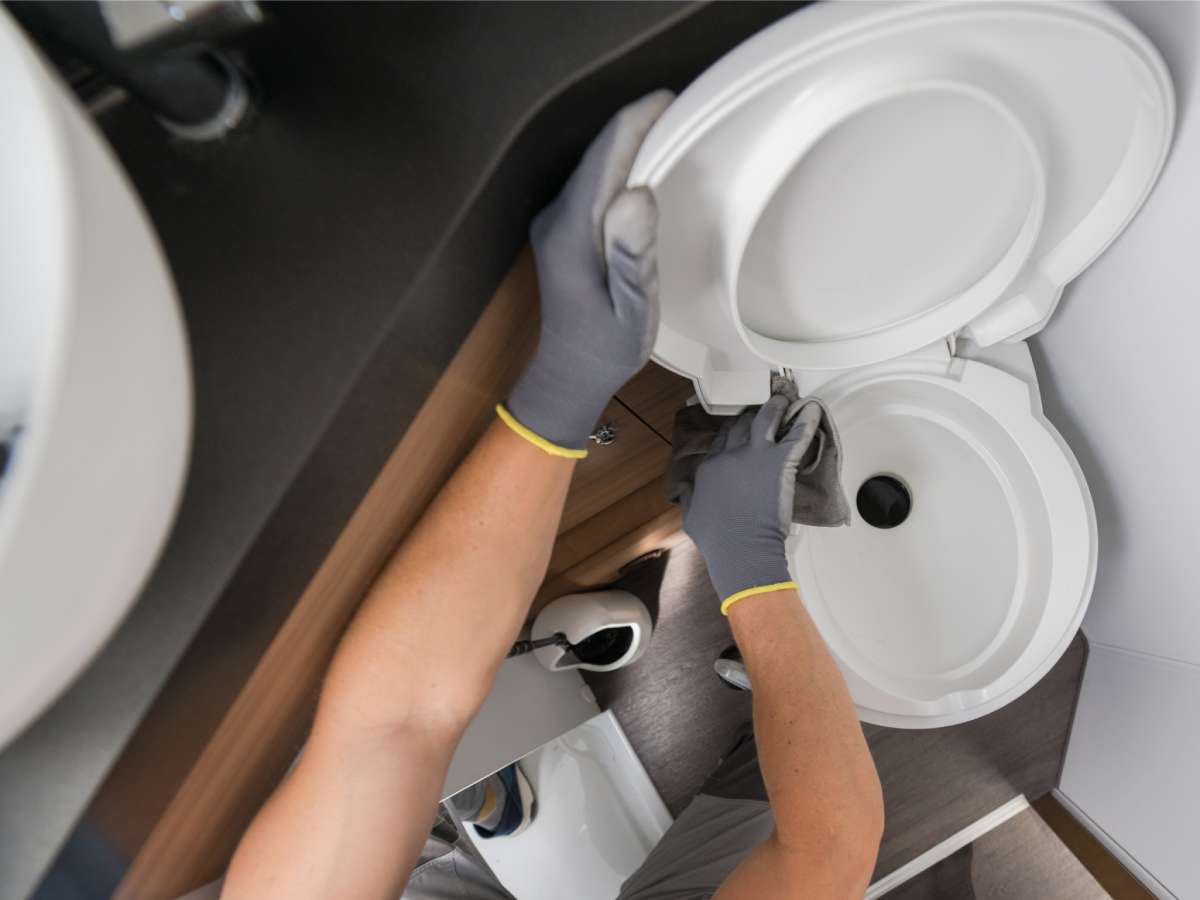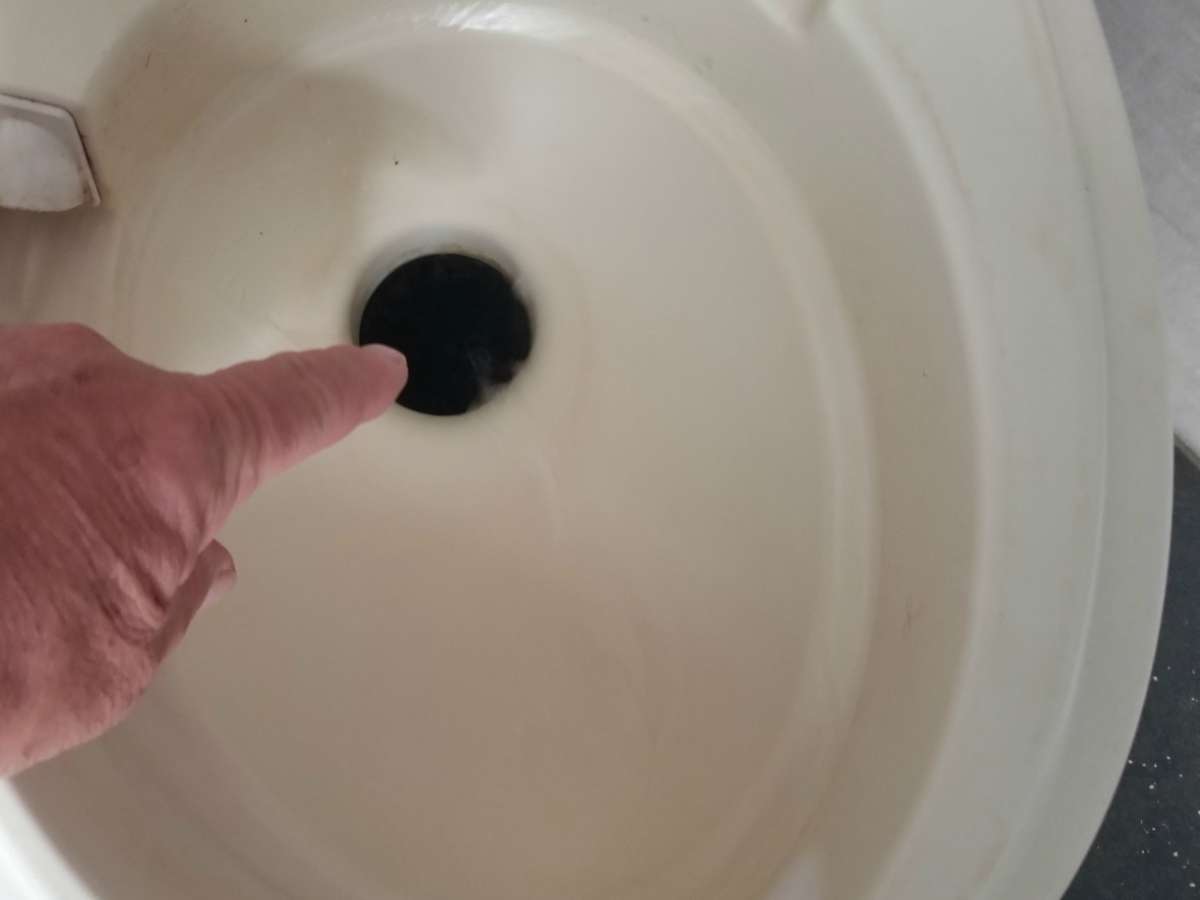Safety alarms are an important part of all RVs.
 Being safe and snug in your RV is something that many people may take for granted. All currently manufactured RVs come equipped with an RV alarm and additional warning buzzers galore.
Being safe and snug in your RV is something that many people may take for granted. All currently manufactured RVs come equipped with an RV alarm and additional warning buzzers galore.
RVs didn’t incorporate all of the sophisticated alarms and detectors a couple of decades ago.
If you’re restoring a classic RV travel trailer (or maybe purchasing your first motorhome that was built back in the 1980s), then there is a very good chance you’re missing at least one or two of the safety alarms that are included in all new RVs manufactured today.
4 RV Alarm Types:
#1 – Smoke alarms
Smoke alarms have been around for quite awhile… almost to the point of complacency.
We all recognize the round white shape mounted on the ceiling, but when was the last time you replaced the batteries or pressed the test button to make sure it functions properly?
If you’re installing a smoke alarm on an older RV, mount it on the ceiling. Smoke and heat will rise quickly to that level, and you need as much warning of fire or choking smoke as possible.
Also, be sure to install new batteries at least once a year, and test the alarm every month.
#2 – Carbon monoxide detectors
Carbon monoxide can be found in the exhaust of gas engines (such as generators) and also in the exhaust coming from the furnace in your RV that is keeping you toasty warm all night.
The importance of having an RV alarm for this danger has been emphasized in more recent years, but is only now being required in residential homes.
A secondhand RV may not be equipped with a carbon monoxide detector. However, the confined space of any RV, motorhome, or trailer makes this odorless invisible gas all that more deadly.
Carbon monoxide poisoning requires immediate medical attention and is very often fatal. Carbon monoxide detectors should be mounted in (or as close as possible to) the sleeping areas — so they will awaken you when sleeping.
#3 – Propane gas detectors
Propane gas detectors are a key element of RV propane systems in RVs. They must endure constant vibration and jarring while traveling down the highways. This constant movement greatly increases the possibility of damaging the plumbing required to deliver propane to your gas appliances.
This is a rather extensive system because in most RVs you have a furnace, a stove (possibly with an oven), a refrigerator, and a water heater. That’s a lot of pilot lights or electronic igniters that must all function correctly every time.
Something as simple as turning the knobs for the stovetop the wrong direction can easily leave raw propane escaping into your living space. Believe me when I say anyone can make this mistake — because I have done just that. Thinking I was turning the burner off by twisting it counter-clockwise, I was only placing it on low. Full clockwise was the correct position to turn the burner off. This is somewhat counter-intuitive when compared to the gas stove in your house. Fortunately, I caught my error in a minute or so when I could smell the paint starting to burn on the stovetop cover I had lowered over the burners!
In current- and late-model motorhomes, when the propane alarm sounds it also cuts off the flow of gas from the tank to the motorhome appliances. Be aware of this — because any appliance that relies on a burning pilot light to function will need to be re-lit at the point gas pressure is restored.
#4 – Fire extinguishers
Something as simple as a little grease fire on the stove can quickly get out of hand. Within the small confines of an RV, even the smallest of fires can lead to disaster in a matter of seconds!
The best defense is to immediately evacuate and get a safe distance away — in case propane or gas tanks explode from the heat. Having a good quality fire extinguisher may make the difference between a few dollars of fire damage and having nothing left beyond the charred remains of the frame from your RV. (The photo at the top of this post illustrates that disaster very well.)
Here are a few tips when choosing a fire extinguisher:
- Choose an ABC classified fire extinguisher. This is the only type that can be used on any type of fire.
- Periodically, check that the charge indicator needle is in the GREEN area on the gauge. If it has moved to the RED, replace or recharge the fire extinguisher.
- Occasionally, turn the fire extinguisher upside down and shake it thoroughly. The dry powder chemical inside will cake and become a solid block over time. Leaving your RV in storage — both during a long hot summer or during a cold hard winter — will increase the possibility of your chemical fire extinguisher becoming a useless hard block.
- The best fire extinguisher is one that can be recharged and inspected by a professional service and gets serviced on regular intervals. Forget the small throwaway units. Odds are better than average that when it comes time to use it, it won’t function.
Fires are serious matters, and they require serious ways of stopping them.



